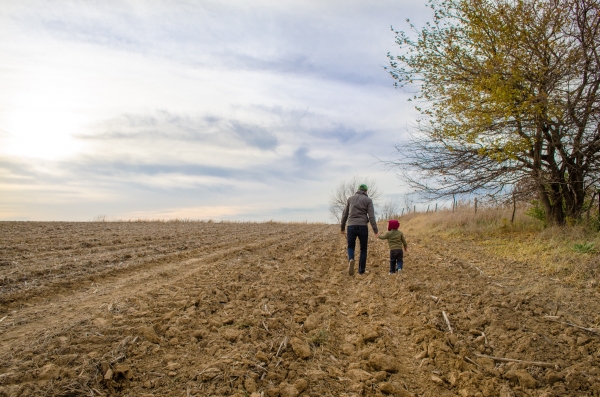Heather Watson, the executive director of Farm Management Canada, had an a-ha moment about the changing perception of what it takes to be a good farmer when she heard Sarah Weigum, a pedigreed seed producer in Alberta, speak about transitioning from farmer’s daughter to farmer.
“She was recalling a conversation with her father where she was expressing concern that she did not have the mechanical or ‘Mr. Fix-it’ skills of her father and felt she could never truly be a farmer; that she would always be lacking,” Watson says.
Weigum’s father assured her that farming is changing, and that her skills in customer relations, marketing and communications, in combination with good management skills, would provide her with the profit to hire people to fix the equipment.
“I thought this was quite profound: the changing face of farming and how recognizing the importance of managerial and leadership skills allows us to transcend traditional definitions of the farmer,” Watson says. “The skills required by today’s farmer are allowing us to think in much broader terms when it comes to the farm owner, manager, operator.
“Skills in strategic planning, including visioning, forecasting and financial management, human resource management, marketing and performance assessment are critical to today’s farmer and result in a much greater chance of a successful farm transition of a healthy farm business for generations to come.”
Identify strengths and weaknesses
The first step is to identify the strengths and weaknesses of the successors by doing an assessment of the farm business.
“The assessment helps farmers determine potential areas for additional training, as well as those areas where hiring outside help, such as a farm business advisor, might be useful,” Watson says. “In farm transition planning especially, farm business advisors are crucial.”
Joel Bokenfohr, the manager of business structures and financial policy with Alberta Agriculture’s livestock and farm business branch, says self-analysis is critical for identifying the skill sets needed to bring back to the farm.
“Identify the areas you can add value and take responsibility for in the short term; then identify the area you have had no exposure with or need to improve or outsource.” He explains there are a number of tools people can use to self-evaluate their skill development and help set up a learning plan to get the professional development needed. He recommends setting up a clear learning plan that identifies a certain skill, allows for training and a place to put it into practice and apply it directly on farm.
Mentoring
Mentoring successors over time, both on-farm and by others in the industry, is one way to improve a skill set.
“Today’s farmers, and those who came before, have a profound impact on successors, good or bad, whether they realize it or not,” Watson says. “While technical skills can be passed quite easily from one generation to the other, managerial and leadership skills take considerable time.”
And, since many farmers are used to making decisions based on their experience, mentorship can be a great way to transfer this knowledge. It can be very beneficial to have the opportunity to learn from someone who has the experience of farming the same ground and animals. As an added bonus, mentorship can often flow both ways as both the mentee and mentor can learn from each other.
“Having someone to mentor on-farm can bring in enthusiasm, new ideas and some questioning of processes for improvements,” Bokenfohr says.
If the skills are not readily available from the current generation on the farm, it’s a good idea for future farmers to seek experience off the farm and on other farms to gain a diverse skill set.
“Finding off-farm mentors, or advisory boards as some farms are doing, can be very important for skill development,” Bokenfohr says. “Generally for off-farm mentorship, it is important to set clear goals and a focus on what you both expect to get out of the mentorship.”
He adds the mentorships he’s seen done really well have key goals written out and agreed to by both the mentee and mentor to follow initially. “They set clear processes, roles and responsibilities and slowly expand the successor’s scope until the mentor moves into more of an advice or supporting role.
Watson says the best mentorships she’s seen are when mentors work with their mentees to explore their reasoning behind decision-making. “After all,” she says, “farm business management boils down to having mechanisms in place to make informed decisions.”
Bokenfohr stresses this is a long-term process and not a single event. “There has to be some room to make mistakes as well, learn from those mistakes and set up processes to improve,” he says. “Then celebrate some of the successes and encourage growth.”
Learn more
There are many resources available for assessing skills and planning for succession.
“The Provincial/Territorial Ministries of Agriculture each offer a number of farm business assessment tools for farmers to get a handle on how they are performing with respect to the strengths, weaknesses and priorities of the farm business given the current and future business climate,” says Bokenfohr.

 Photo courtesy of Kelly Sikkema
Photo courtesy of Kelly Sikkema